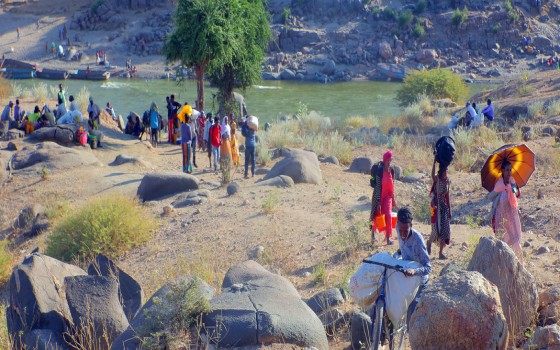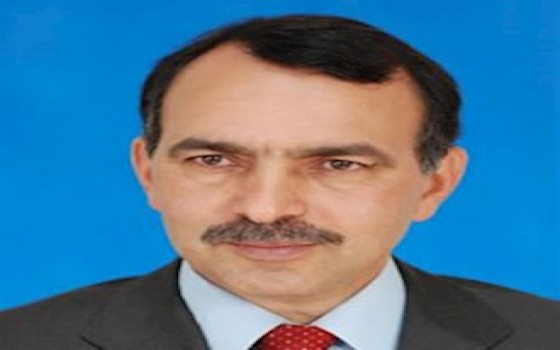
Actions required achieving food security in Africa

- Europe and Arabs
- Sunday , 14 August 2022 14:48 PM GMT
Actions required achieving food security in Africa
By
Prof. Dr. Abdel Moneim Sedki
Animal Production Research Institute
African countries should use the analytical tools to predict long-term climate changes and the socio-economic impacts of the implementation paths of the defined contributions to give priority to the areas of investment that increase the climate and socio-economic benefits by moving to low-emission development paths. Supporting the implementation of contributions in the waste sector and giving them priority in many contributions to develop tools and strategies that stimulate increased investments in the field of waste to reduce hazardous emissions from waste to reduce greenhouse gases and short-term climate pollutants in the municipal solid waste sector to reduce emissions of the most widespread waste while providing income opportunities. Recycling waste into organic fertilizers and domestic fuel briquettes
The proportion of youth in Africa’s population reaches more than 60%, making them the most important non-governmental active category on the continent in terms of numbers. Their abilities, creativity, skills and talents must be utilized to advance climate action while opening opportunities for them by focusing on clean energy and sustainable agriculture, which are among the priority economic and climate sectors. In Africa, directing youth towards using current empowerment policies and developing and integrating these climate solutions into their ongoing businesses and institutions, such as directing youth towards training in waste recycling, which are not capital-intensive opportunities in projects and providing effective alternatives to contemporary unsustainable solutions for coal and chemical fertilizers. Briquettes are not only as affordable as charcoal but they burn better, don't induce deforestation, don't produce smoke and cause indoor pollution like charcoal.
Youth should be instructed to train and develop mechanical solar dryers that dry and maintain food in line with standards without producing emissions. These dryers turn post-harvest losses into income.
Possibility of developing digital ICT marketing systems to enable different actors in the agricultural value chain to efficiently access markets and supply chains from the comfort of their homes and on their phones through value-added solutions An increase in income can be achieved at the farm and post-farm levels.
Investing in the latest practices and technologies that are sensitive to changing climate conditions, such as hydroponics, conservation farming methods, safe use of treated water, and the use of scarce natural resources in the region in a more sustainable manner, with attention to training programs on entrepreneurship and practices that face climate change and restore agricultural production capabilities and value chains.
Supporting farmers to adopt more productive, sustainable and resilient systems in the face of droughts, floods and other risks, while taking social protection measures such as safety nets and food aid programs targeting the neediest and most vulnerable groups.












No Comments Found